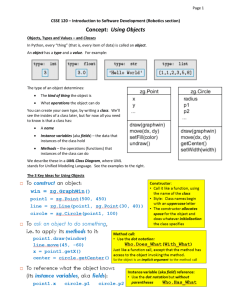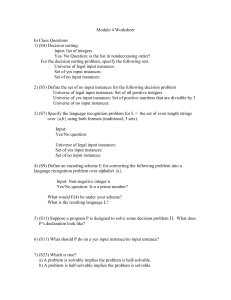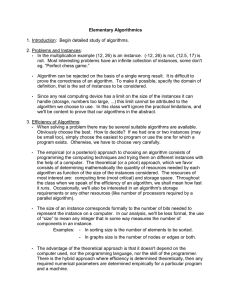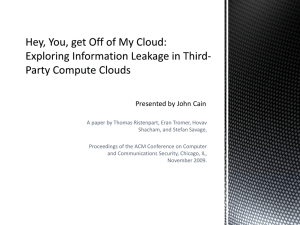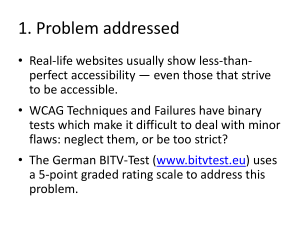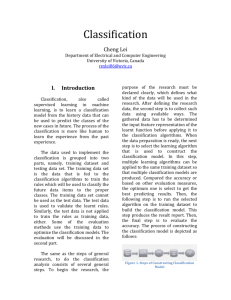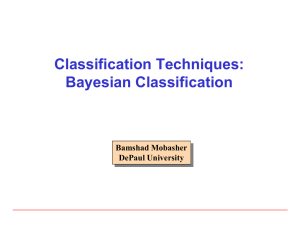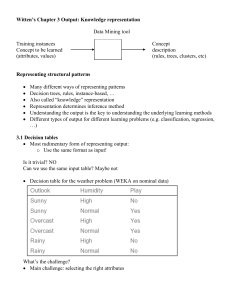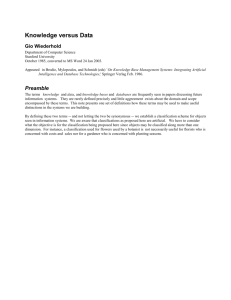Guidelines
advertisement
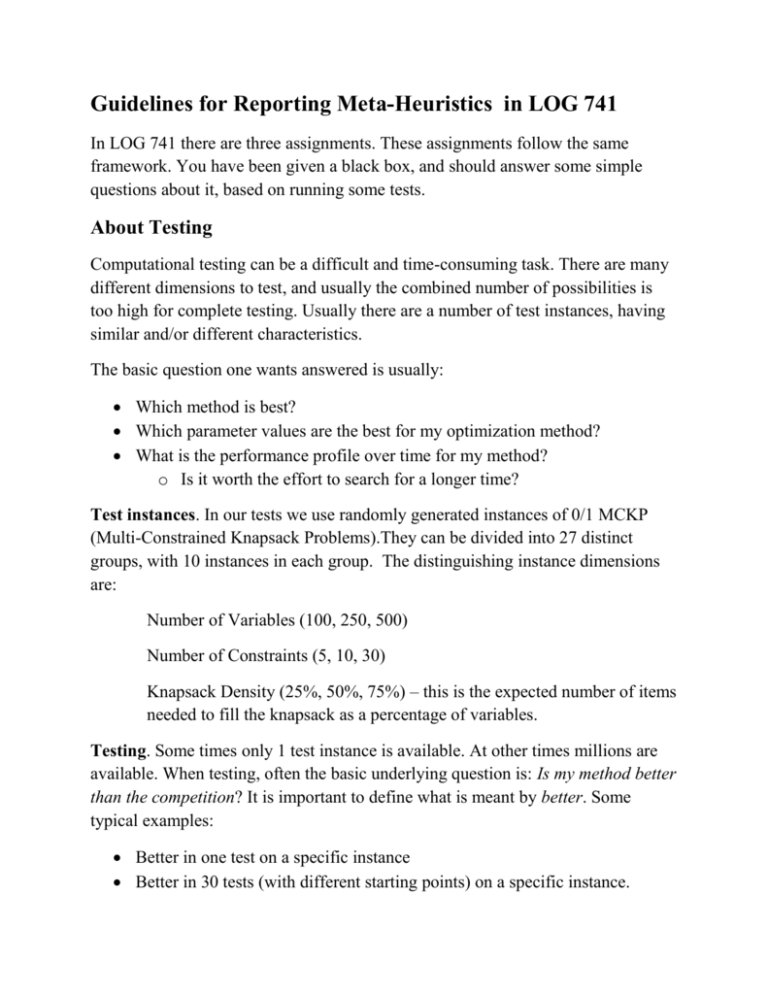
Guidelines for Reporting Meta-Heuristics in LOG 741 In LOG 741 there are three assignments. These assignments follow the same framework. You have been given a black box, and should answer some simple questions about it, based on running some tests. About Testing Computational testing can be a difficult and time-consuming task. There are many different dimensions to test, and usually the combined number of possibilities is too high for complete testing. Usually there are a number of test instances, having similar and/or different characteristics. The basic question one wants answered is usually: Which method is best? Which parameter values are the best for my optimization method? What is the performance profile over time for my method? o Is it worth the effort to search for a longer time? Test instances. In our tests we use randomly generated instances of 0/1 MCKP (Multi-Constrained Knapsack Problems).They can be divided into 27 distinct groups, with 10 instances in each group. The distinguishing instance dimensions are: Number of Variables (100, 250, 500) Number of Constraints (5, 10, 30) Knapsack Density (25%, 50%, 75%) – this is the expected number of items needed to fill the knapsack as a percentage of variables. Testing. Some times only 1 test instance is available. At other times millions are available. When testing, often the basic underlying question is: Is my method better than the competition? It is important to define what is meant by better. Some typical examples: Better in one test on a specific instance Better in 30 tests (with different starting points) on a specific instance. Better in 30 tests (with different starting points) on a class of instances Better in 30 tests (with different starting points) on all instances Either compare values from the same instance, or use the average of a statistically significant number of similar instances. Some final points Formulate some hypothesis to prove (or disprove) Be systematic Make fair comparisons Remember to test also for long times, 100.000.000 iterations? 1 hour? Answer the questions. This is often forgotten. Justify the answers. This means that you should explain why you reach a specific conclusion. Statistical significance. Local Search Heuristic choices are very often based on some generated random number. A single computational test can thus have a high variance in the results produced (i.e. best solution found) when repeated with different random seeds. To produce higher statistical significance, a single test may be repeated repeatedly, as long as different random number sequences are used. You should consult your statistics course literature, but mainly there are two choices for statistical tests. One is to use a non-parametric test like Mann-Whitney, or have enough samples to approach a normal distribution, and then use a parametric test for normal distributions. Be able to reproduce the results. There is often a need to rerun all the tests made. This might have different reasons, most often it is because an error in the code is detected.The following points can help this re-testing. Collect all tests in a set of batch-files. A good example is given in assignment 1. If a random number generator is used, reproducibility of single tests can be guaranteed by using the same random number seed, starting the random number generator at the same place in its pseudo-random sequence. About the document Only deliver 1 document Length 3 – 10 pages Add page numbers The front page of the document should contain the name of the authors Do not hand in log-files Use e.g. EXCEL to make graphics, and then cut and paste into the report Related text and graphics and tables should be together Always reference a table or graphic. Make the document self-contained Make the document look nice. o Pay attention to layout. o Remember that someone else might read it o A nice document puts the reader (grader) in a better mood. Other Max group size = 2
